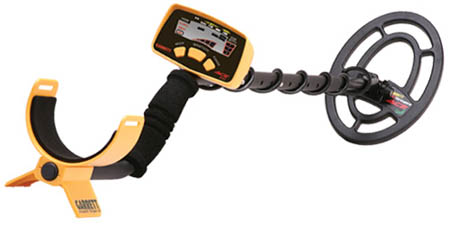The most commonly asked questions I purchase when talking treasure hunting is, “What’s the most effective metal detector?” Everybody asked that real question is gonna have his/her own slant on the subject. Every one has their particular experiences, with each having their very own “type” of treasure they go for. I’m no exception. So, I’m going to give my “slant” and find out if a few things i contribute will narrow the choices down a lttle bit.
First… and by far the most important criteria when selecting a metallic detector is “choose a metal detector you’ll use.” I can’t care how fancy or expensive a metal detector is… if all it does is sit inside a corner which has a jacket hanging concerning this, it is going to find you can forget treasure compared to a child’s toy. I say this, when i have seen individuals with a collection of metal detectors… some fundamental, and a few fancy… and lots of times they choose the basic detector, because all the settings, controls, buttons, and what-nots around the fancy detector are only too complicated on their behalf. They just don’t have fun with this; they just don’t comprehend it, and for that reason they don’t put it to use. So, should you be a novice to metal detecting, or don’t relish the idea of being forced to learn what all of the buttons, knobs, and screens do and mean, remodel which will you’re better off with a more “basic” model, a minimum of before you get experience and figure out just what you need and may handle.
Metal detectors do exactly that. They detect metal… all metal. Ferrous metal is iron based and is drawn to a magnet (iron, steel, etc.). Non-ferrous metal is just not iron based and does not be drawn to a magnet (aluminum, copper, nickel, silver, gold, platinum, etc.).

Ground Balancing – Many detectors offer circuitry to cope with mineralization inside the soil. Mineralization may be a result of salts, iron, “black sands,” “hot rocks” or any other “hot” deposits that naturally occur. If you are planning on nugget-shooting (detecting for gold nuggets), opt for a machine that’s specifically designed for nugget-shooting. Should you be gonna be beach combing (detecting at the beach), pick a beach machine (not just could be the circuitry better designed to handle the mineralization found at the shore, but a majority of be more effective built to withstand the saltier environment). In case you are detecting at various locations, for example parks, fairgrounds, or other public, a “general purpose” machine will perform. Bare in mind, you need a machine with some sort of ground balancing capability.
Sensitivity – Most detectors may sensitivity adjustment. The hunt coil in the detector it’s essentially an antenna that has an electromagnetic field emanating in the pattern that’s “shaped” with the shape of the coil (round or elliptical will be the most frequent). The space (depth) it reaches is a factor of output and frequency. If this field is disturbed by the target (metal), the circuitry senses the disturbance as well as the detector registers with sound and/or visually on the display (meter or graph). The sensitivity adjustment will permit the detector to sense this disturbance by smaller targets (in a given depth) or possibly a given target in a greater depth. The trade-off is the greater the sensitivity, the better the effect of non-target “junk” and mineralization. Setting the sensitivity too high will result in false hits, roughly much electrical chaos that targets are missed, especially weak targets. An excessive amount of sensitivity also can result in a medium or large size target to “overwhelm” the circuit and make it blast an overload signal.
More info about metal detecting please visit web page: read more.
 Search engine for touristic excursions to any place in the world
Search engine for touristic excursions to any place in the world